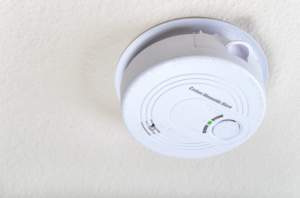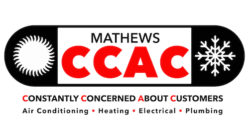
Here’s the lowdown on carbon monoxide in the home, and why you need detectors in good working order.
Why Carbon Monoxide is a Concern
Carbon monoxide is an odorless, tasteless, invisible gas that in sufficient quantities can sicken and kill living creatures. As a byproduct of the combustion process, it is of concern wherever there are fuel-burning appliances such as these:
- Automobile in an attached garage
- Gas-powered clothes dryer, range, water heater
- Gas-powered furnace
- Back-up generator
- Barbecue grill located too close to the house
- Boat engine (where fumes can enter the home)
- Kerosene-burning space heaters
Fumes from these appliances can sicken and kill in minutes. When a dangerous buildup of carbon monoxide fumes occurs, it is necessary to clear the home and call emergency personnel. Afflicted individuals should be hospitalized and the home should remain empty of humans and pets until emergency personnel declare it safe to re-enter.
How CO Monitors Can Keep You Safe
Installing CO monitors at strategic locations is one of the best ways to keep your household safe.
There are several different types of carbon monoxide detectors. Whichever you choose, the main thing to remember is to check them periodically to ensure they are working, whether by changing batteries or making sure wires are connected as they should be. Also, press the test button at least once a week to be sure they work.
When installing a CO detector, do the following:
- Install near bedrooms or family rooms.
- Avoid installing in kitchens where fumes from cooking appliances may cause false alarms.
- Do not install near fans or vents.
- Install in the center of the room.
For more information on carbon monoxide detectors, contact CCAC, serving the Coastal Bend area. We are Constantly Concerned About Customers.
Our goal is to help educate our customers in Corpus Christi, Texas about energy and home comfort issues (specific to HVAC systems). For more information about HVAC topics, download our free Home Comfort Guide or call us at 361-678-2495.
Credit/Copyright Attribution: “leena-robinson/Shutterstock”












